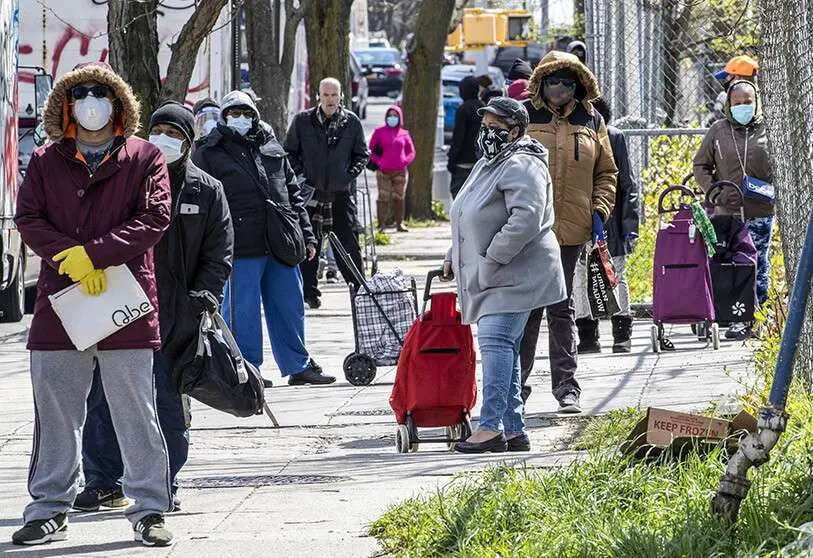Pandemic: grim outlook

The movement known as the Arab Spring, from 2010 to 2012, brought with it a series of violent demonstrations against many governments in (mainly) Arab countries, with a mob enraged by the lack of job opportunities, the violation of human rights and the real absence of democracy.
Today, the blow to the social and economic fabric caused by the pandemic is fast becoming a balm to lubricate new social and civil movements in those countries that, even before the global health emergency caused by SARS-CoV-2, were already burdened by inequality, poverty, exclusion and inequity.
The pressures are building: what surprises me most is that they did not start much earlier, considering that we have been dealing with the damn pandemic for more than a year now, which has paralysed production, disrupted global supply chains and destroyed many forms of the traditional economy... in other words, it has not only caused more than 4 million deaths in the world so far, it has also left a lot of misery and economic destruction.
Ordinary people have stoically endured the measures taken by many governments around the world, some very severe with forced confinements, long quarantines, curfews, total control of civil liberties and even freedom of movement; as well as the mandate for thousands of businesses to remain closed as they do not correspond to the category of essential.
This has happened to the formal economy, but it seems that the informal economy does not exist: the whole wide and vast underworld of black money mobilised by many, many activities that every day feed millions of families in both industrialised and more developed countries, as well as in less developed ones.
If for people in the formal economy, governments (some) have decreed emergency economic aid packages in the form of subsidies, cheques or direct payments, for people of all ages who live and subsist in the informal economy there has not been a single aid package... from any government and in any country.
We are talking about millions of people who can no longer resist, they are absolutely alone and abandoned to their fate and the pandemic with the advance of several variants does not seem to be giving up either.
People are hungry, fearful, uncertain and have multiple needs to satisfy, above all to feed their own; protests are spreading because of that social anger that creaks when the stomach has been empty for several days... and there is no prospect of it getting better.
From Colombia, to Cuba, South Africa, Nicaragua, Iraq, Afghanistan, Chile, Haiti and the next countries to join in, because this wave of social irritation is not going to end the day after tomorrow.
Hunger always ends up guillotining rulers and changing political regimes, thus the monarchy fell in France and letters of blood and transformation have been written in the annals of history.
The pandemic is becoming this revulsive not only as an accelerator in the digital, technological or qualitative spring in many sectors... it will also change people socially and will have a political impact in two ways: one, at the ballot box and the other, in the streets.
Several international analysts are already warning of an increase in populism and extreme ideologies as a consequence of all the fear and uncertainty caused by the pandemic. In the end it is a kind of every man for himself and the result will be more ostracism.
Not all the worst affected countries are the least developed, the most industrialised and developed economies are facing serious challenges right now with a growing mass of unemployed and the pressure of a highly educated youth who expect to live worse than their parents and even their grandparents.
In France, not long ago, President Emmanuel Macron even received an alert from Defence that the French nation was on the brink of civil war.
In Spain, the data are not flattering either: the National Institute of Statistics announced that last year, severe poverty almost doubled, growing to 7% of the population, which means that seven out of every hundred Spaniards suffer from it, while one in four has reached the brink of poverty. For the moment, there are only hunger lines of people coming to ask for food from religious institutions, foundations or NGOs, but no one is ruling out a wave of protests. Let's see if we don't experience a global socio-political tsunami...


